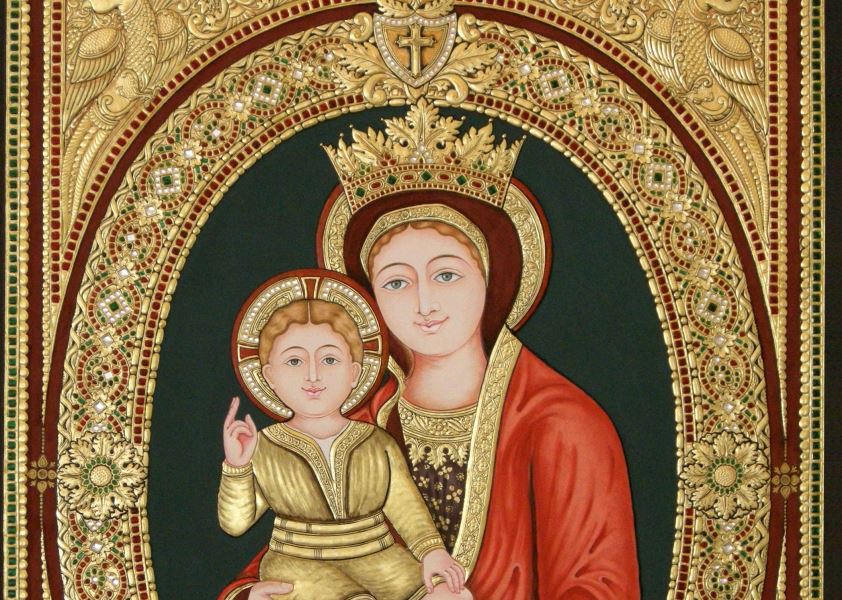
Dec 31, 2016 | Non categorizzato
 (…) History is all about wars and when we were children at school we almost learned that wars are good and holy, almost as if this is what protects our own land. (…) But if we hear the appeals of the Popes echoing in our hearts (…) we would hear their dread of war in the world and how their words, whether called for or not, appealed to leaders to try to appease anger and self-interest and to avert the terrible tragedy of war, through which everything is lost, while everything is gained by peace. This is because history is a succession of fratricidal conflicts between peoples who are brothers and sisters and who have been given a piece of land to cultivate and live on by the one Lord of the world. He blesses peace because he embodied peace. We see how one by one the Lord is conquering the hearts of his children of all nations, of all languages, transforming them into children of Love, Joy, Peace, Courage, and Strength. So we hope that the Lord will have mercy on this divided and wild world, on these peoples locked up in their own shell contemplating their own beauty – which is special for them – yet limited and inadequate, clinging on with clenched teeth to their own treasures, even those goods that could help other peoples where many are dying of hunger, and that he will break down the barriers and let charity flow continuously between one land and another, in a torrential flow of spiritual and material goods. We hope that the Lord will establish a new order in the world. He alone can make humanity a family and cultivate what is distinctive among peoples, so that the splendor of each people, placed at the service of the others, may shine out with the one light of life that beautifies the earthly homeland and makes it the waiting room of the eternal Homeland. Perhaps what I am saying sounds like a dream. Nonetheless – apart from the fact that if mutual love is the relationship among Christians, then the relationship among Christian nations cannot be other than mutual love because of the unchanging logic of the Gospel – there is a bond that already unites people strongly, proclaimed by the voice of the people and of all peoples, the people’s voice which so often is God’s voice. This hidden and protected bond in the heart of every nation is Mary. Who could take from the Brazilians the thought that Mary is the Queen of their land? And who would deny to the Portuguese that Mary is “Our Lady of Fatima”? Who would not allow the French the “beautiful little Lady of Lourdes”? Or the Poles Our Lady of Czestochowa? Or not let the English see their land as the “dowry of Mary”? And who could deny that Mary is the “Castellana of Italy” (…) All Christian nations have already proclaimed her their Queen, theirs and their children’s. But one thing is missing, and Mary cannot do it, so we have to help her. We need to collaborate so that Catholic peoples, united like many brothers and sisters, might go to her and together recognize her as Mother and Queen. We can enthrone her if, through our conversion, our prayers, and actions, we remove the veil that still covers her crown, (…) and lay down the piece of the world that is in our hands … at the feet of the greatest Queen that Heaven and earth can know. She is Queen of peoples, Queen of Saints, Queen of Angels, because when she was on earth she was able to sacrifice herself completely, the Handmaid of the Lord, and teach her children the way of unity, of embracing all peoples, so that earth might become as it is in Heaven. From Essential Writings p 222-233
(…) History is all about wars and when we were children at school we almost learned that wars are good and holy, almost as if this is what protects our own land. (…) But if we hear the appeals of the Popes echoing in our hearts (…) we would hear their dread of war in the world and how their words, whether called for or not, appealed to leaders to try to appease anger and self-interest and to avert the terrible tragedy of war, through which everything is lost, while everything is gained by peace. This is because history is a succession of fratricidal conflicts between peoples who are brothers and sisters and who have been given a piece of land to cultivate and live on by the one Lord of the world. He blesses peace because he embodied peace. We see how one by one the Lord is conquering the hearts of his children of all nations, of all languages, transforming them into children of Love, Joy, Peace, Courage, and Strength. So we hope that the Lord will have mercy on this divided and wild world, on these peoples locked up in their own shell contemplating their own beauty – which is special for them – yet limited and inadequate, clinging on with clenched teeth to their own treasures, even those goods that could help other peoples where many are dying of hunger, and that he will break down the barriers and let charity flow continuously between one land and another, in a torrential flow of spiritual and material goods. We hope that the Lord will establish a new order in the world. He alone can make humanity a family and cultivate what is distinctive among peoples, so that the splendor of each people, placed at the service of the others, may shine out with the one light of life that beautifies the earthly homeland and makes it the waiting room of the eternal Homeland. Perhaps what I am saying sounds like a dream. Nonetheless – apart from the fact that if mutual love is the relationship among Christians, then the relationship among Christian nations cannot be other than mutual love because of the unchanging logic of the Gospel – there is a bond that already unites people strongly, proclaimed by the voice of the people and of all peoples, the people’s voice which so often is God’s voice. This hidden and protected bond in the heart of every nation is Mary. Who could take from the Brazilians the thought that Mary is the Queen of their land? And who would deny to the Portuguese that Mary is “Our Lady of Fatima”? Who would not allow the French the “beautiful little Lady of Lourdes”? Or the Poles Our Lady of Czestochowa? Or not let the English see their land as the “dowry of Mary”? And who could deny that Mary is the “Castellana of Italy” (…) All Christian nations have already proclaimed her their Queen, theirs and their children’s. But one thing is missing, and Mary cannot do it, so we have to help her. We need to collaborate so that Catholic peoples, united like many brothers and sisters, might go to her and together recognize her as Mother and Queen. We can enthrone her if, through our conversion, our prayers, and actions, we remove the veil that still covers her crown, (…) and lay down the piece of the world that is in our hands … at the feet of the greatest Queen that Heaven and earth can know. She is Queen of peoples, Queen of Saints, Queen of Angels, because when she was on earth she was able to sacrifice herself completely, the Handmaid of the Lord, and teach her children the way of unity, of embracing all peoples, so that earth might become as it is in Heaven. From Essential Writings p 222-233
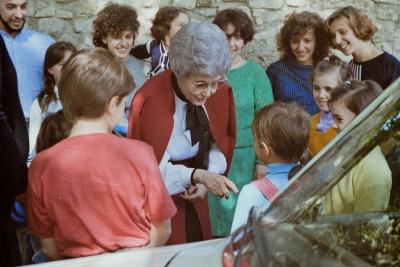
Dec 30, 2016 | Focolare Worldwide, Senza categoria
Download brochure with program Streaming event 11 March, 16:00-18:30 (CET, UTC+1)
A path o f life and thought to be shared throughout the year, at all latitudes. 50 years after its founding, there will be, in 2017 various local events and initiatives in various countries worldwide. A roadmap of life and thought in various phases will highlight the anthropological and universal value of the family in the perspective of “universal brotherhood,” and testify to the richness of social and cultural diversity, together with the ideal of unity concretised in family life. The central event will be held in Loppiano from 10 -12 March 2017. About 800 people from all over the world are expected to attend. The families will immerse themselves fully in the reality of the international town of the Focolare, and bear witness to Chiara’s dream in all the continents. In the morning there will be workshops for adults, youth, teenagers and children, held in collaboration with the parish movement, the gen3 and gen4 centres, the no-profit AFN and AMU. In the afternoon the meeting in the Auditorium will be aired via live streaming and will highlight the experts of family themes, who will be participating in the Cultural Seminar to be held at the Sophia University (10 -11 March 2017). This seminar with its characteristic universal outlook will give rise to the future Study Center on the family, with the objective of enhancing the contribution of the spirituality of unity to the family in the challenges it has to face today. For information: www.famiglienuove.org famiglienuove@focolare.org
f life and thought to be shared throughout the year, at all latitudes. 50 years after its founding, there will be, in 2017 various local events and initiatives in various countries worldwide. A roadmap of life and thought in various phases will highlight the anthropological and universal value of the family in the perspective of “universal brotherhood,” and testify to the richness of social and cultural diversity, together with the ideal of unity concretised in family life. The central event will be held in Loppiano from 10 -12 March 2017. About 800 people from all over the world are expected to attend. The families will immerse themselves fully in the reality of the international town of the Focolare, and bear witness to Chiara’s dream in all the continents. In the morning there will be workshops for adults, youth, teenagers and children, held in collaboration with the parish movement, the gen3 and gen4 centres, the no-profit AFN and AMU. In the afternoon the meeting in the Auditorium will be aired via live streaming and will highlight the experts of family themes, who will be participating in the Cultural Seminar to be held at the Sophia University (10 -11 March 2017). This seminar with its characteristic universal outlook will give rise to the future Study Center on the family, with the objective of enhancing the contribution of the spirituality of unity to the family in the challenges it has to face today. For information: www.famiglienuove.org famiglienuove@focolare.org
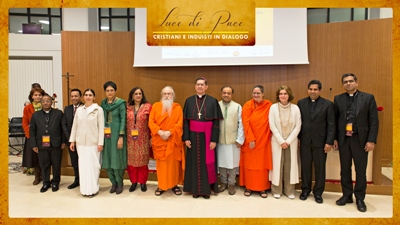
Dec 30, 2016 | Non categorizzato
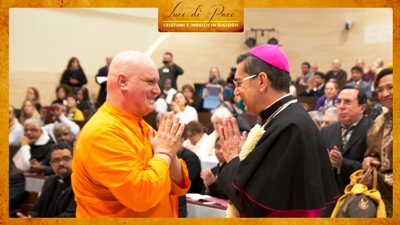 “So is craving, so is anger, they arise from the Rajas, the passion of the senses that devours everything” (Bhagavad Gita, 3:37)[1]. These words were chosen by Paramahamsa Svami Yogananda Ghiri, honorary president of the Italian Hindu Union (UII), in his welcome speech at the first Christian-Hindu Conference that crowded the main hall of the Pontifical Gregorian University on December 6, 20016. The conference was opened by Cardinal Jean-Louis Tauran, president of the Pontifical Council for Interreligious Dialogue. He was the promoter of the event in collaboration with the UII, the Italian Bishops Conference, Religions for Peace and the Focolare Movement. The cardinal expressed his joy for this moment of dialogue that was so promising and hopeful: “With our interior light that consumes and illumines, we will be able to direct our every step along the path of Peace.” Christians and Hindus were equally represented by 300 people who were animated by a desire for communion and understanding. Like emblems, a Lamp and Crucifix adorned the hall, both symbols of light. Light and Peace was the title of the day spent in dialogue and in the search of Peace. The words of Bishop Paul Gallagher, Secretary for [Vatican] Relations with States, were quite meaningful. After recalling the many conflicts around the world, he appealed to the international community to “overcome the logic of individualism, competition and the desire to be first” and asked that as soon as possible an “ethic of solidarity” be promoted. The presentation by Dr Naso from Sapienza University of Rome was also very significant. After presenting the data on the conflicts that had begun for religious reasons, he recalled that in many cases it was precisely the faith communities that became mediators in the peace process: in Norther Ireland, South Africa and Mozambique…. This makes one hope that “religions can really play a constructive role in conflict situations.”
“So is craving, so is anger, they arise from the Rajas, the passion of the senses that devours everything” (Bhagavad Gita, 3:37)[1]. These words were chosen by Paramahamsa Svami Yogananda Ghiri, honorary president of the Italian Hindu Union (UII), in his welcome speech at the first Christian-Hindu Conference that crowded the main hall of the Pontifical Gregorian University on December 6, 20016. The conference was opened by Cardinal Jean-Louis Tauran, president of the Pontifical Council for Interreligious Dialogue. He was the promoter of the event in collaboration with the UII, the Italian Bishops Conference, Religions for Peace and the Focolare Movement. The cardinal expressed his joy for this moment of dialogue that was so promising and hopeful: “With our interior light that consumes and illumines, we will be able to direct our every step along the path of Peace.” Christians and Hindus were equally represented by 300 people who were animated by a desire for communion and understanding. Like emblems, a Lamp and Crucifix adorned the hall, both symbols of light. Light and Peace was the title of the day spent in dialogue and in the search of Peace. The words of Bishop Paul Gallagher, Secretary for [Vatican] Relations with States, were quite meaningful. After recalling the many conflicts around the world, he appealed to the international community to “overcome the logic of individualism, competition and the desire to be first” and asked that as soon as possible an “ethic of solidarity” be promoted. The presentation by Dr Naso from Sapienza University of Rome was also very significant. After presenting the data on the conflicts that had begun for religious reasons, he recalled that in many cases it was precisely the faith communities that became mediators in the peace process: in Norther Ireland, South Africa and Mozambique…. This makes one hope that “religions can really play a constructive role in conflict situations.”  The report by Hindu psychologist Sangita Dubey on cultural differences and on the effects of migration on the psyche due to the different diet, language and mentality was lively and supported with personal experiences. “The challenge of dialogue,” stressed Svamini Hamsananda Ghiri (UII) in his presentation of the Hindu perspective, “is fear, indifference, fundamentalism and suspiscion of the other;” to pursue the common good it is necessary to “see the other as a brother and sister because they are generated by a Father God.” Paul Trianni, the University of St. Anselm, who was asked to give a Christian perspective, he concludes: “When two ancient civilizations encounter one another, two such profound spiritualities, they cannot but recognize the great wealth.” Two experiences of dialogue helped gave substance to the words that had been said: Fr Cesare Bovinelli, Camaldolese monk, recalled the great harmony that existed when it came to themes of environment at Assisi. A young person from the Focolare, Aileen Carneiro of India, described the many activities that were carried out between Hindu and Christian youth. Particularly striking was the synergy with the Ghandian Shanti Ashram group of Coimbatore, who started a project for solving poverty, following the approach of the Economy of Communion. Aileen explained that the dialogue of life must be held up, putting into practice the Golden Rule: “Do to others as you would have them do to you.” La Conferenza si è conclusa con uno spazio culturale di poesie, canti e danze sacre indù, in cui l’arte è diventata ulteriore motivo di comunione, degna cornice alla lettura delThe conference ended with presentation of poetry, Hindu sacred dance and song, in which art became a catalyst of communion, a worthy context for the reading of the Joint Statement. Anna Friso [1] (Our translation from Italian)
The report by Hindu psychologist Sangita Dubey on cultural differences and on the effects of migration on the psyche due to the different diet, language and mentality was lively and supported with personal experiences. “The challenge of dialogue,” stressed Svamini Hamsananda Ghiri (UII) in his presentation of the Hindu perspective, “is fear, indifference, fundamentalism and suspiscion of the other;” to pursue the common good it is necessary to “see the other as a brother and sister because they are generated by a Father God.” Paul Trianni, the University of St. Anselm, who was asked to give a Christian perspective, he concludes: “When two ancient civilizations encounter one another, two such profound spiritualities, they cannot but recognize the great wealth.” Two experiences of dialogue helped gave substance to the words that had been said: Fr Cesare Bovinelli, Camaldolese monk, recalled the great harmony that existed when it came to themes of environment at Assisi. A young person from the Focolare, Aileen Carneiro of India, described the many activities that were carried out between Hindu and Christian youth. Particularly striking was the synergy with the Ghandian Shanti Ashram group of Coimbatore, who started a project for solving poverty, following the approach of the Economy of Communion. Aileen explained that the dialogue of life must be held up, putting into practice the Golden Rule: “Do to others as you would have them do to you.” La Conferenza si è conclusa con uno spazio culturale di poesie, canti e danze sacre indù, in cui l’arte è diventata ulteriore motivo di comunione, degna cornice alla lettura delThe conference ended with presentation of poetry, Hindu sacred dance and song, in which art became a catalyst of communion, a worthy context for the reading of the Joint Statement. Anna Friso [1] (Our translation from Italian)
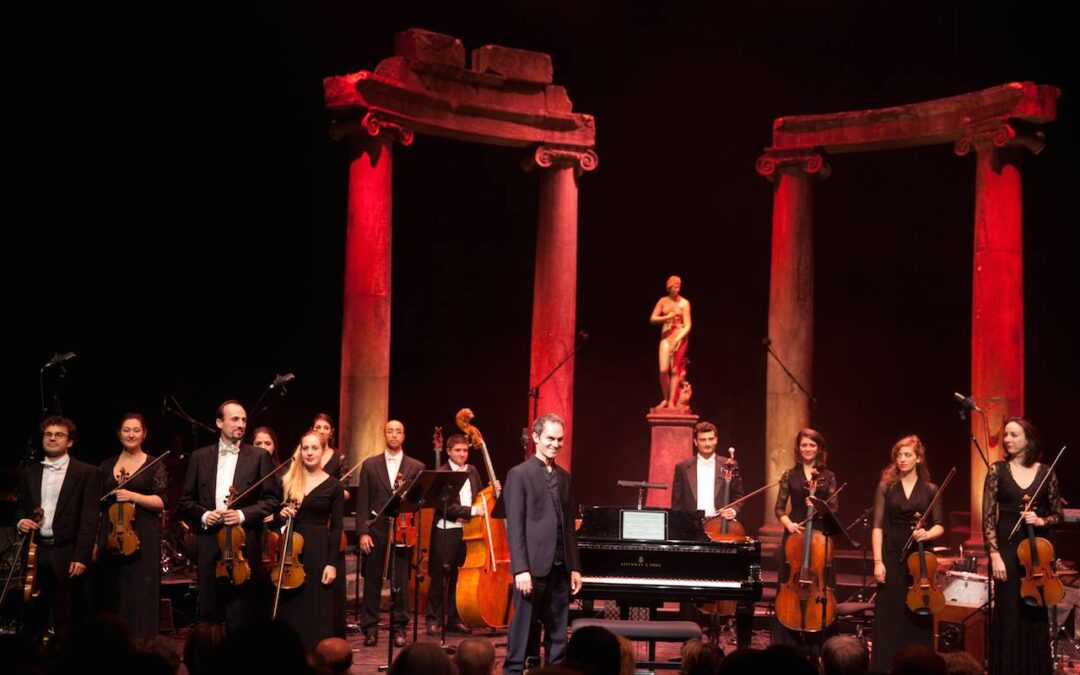
Dec 28, 2016 | Focolare Worldwide, Senza categoria
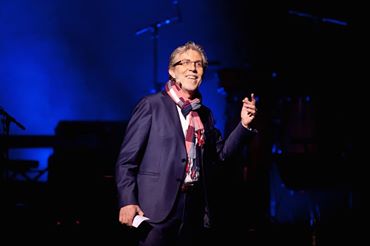
Rocco Femia, Director of the Radici cultural magazine
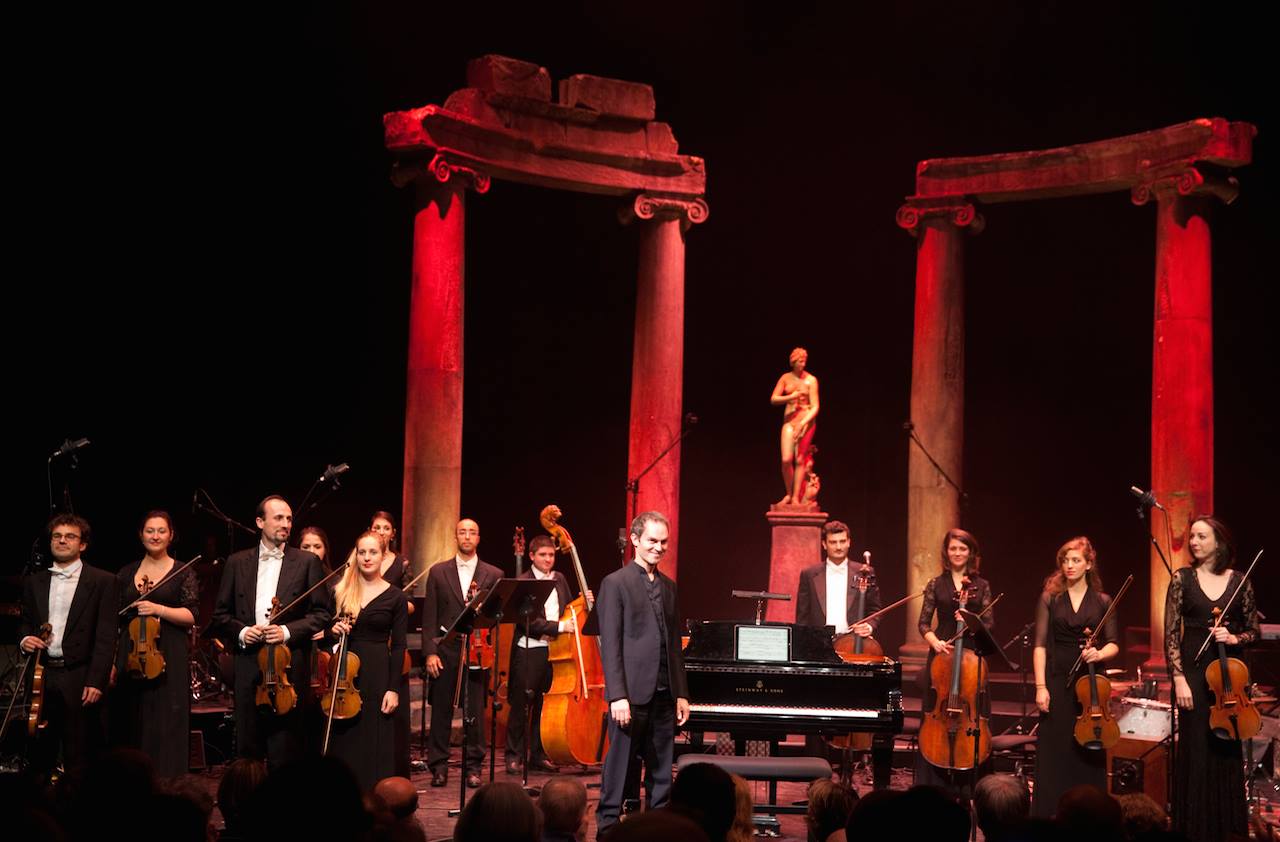 Fifty artists performed for free, confirming the strong sympathy is being felt for those who have suffered great loss. Artists included the OCCITANIA Chamber Music Ensemble, with music of Bach; the popular Italian song group, Incanto, which travels around the world with its musical titled ITALIANI, when we were the immigrants; The DALTIN Trio; Vicente and Rafael PRADAL from Spain; flemenco virtuoso guitarist Kiko Ruiz; the NACCARATO Jazz Trio; mandolin player Julien Martineau; the musical poems of the great Faber, performed by the Fabrizio DE ANDRÈ Band; the unforgettable music from the Italian films and the great finale and standing ovation for Cécile LIMAL who led La vita è bella… by Roberto Benigni. The music alternated with lively presentations by Rocco Femia, Director of RADICI magazine and by television journalists Marina Lorenzo and Patrick Noviello. In his thank-you speech, the director of RADICI did not want to forget anyone, conscious of the deep personal commitment of each person to the success of the event: from the technical crew to the artistic director, to the sound director, to the lights. Then there were the Deputy Mayor Francis Grass, the Italian Console to Toulouse, Fabrizio Mazza, the sponsors, benefactors, the media, and so on. Everyone “won the battle” together. And that is what I experienced as I shared a supper with the artists and technical staff after the concert. There is a strong bond among us, comprised of mutual trust, esteem, shared talent and solidarity – and a strong desire to make the world a more beautiful place. And I joyfully realized that this bond also included me and UWP. So, I wouldn’t be surprised if I discover that what I just experienced is only the beginning of a long and beneficial relationship of collaboration. In fact, when presenting the United World Project (UWP) during the concert, Rocco Femia highlighted the slogan of the RImPresa Project, to sum up what everyone seemed to be feeling: Hope vibrates; the future isn’t trembling.” Gustavo Clariá
Fifty artists performed for free, confirming the strong sympathy is being felt for those who have suffered great loss. Artists included the OCCITANIA Chamber Music Ensemble, with music of Bach; the popular Italian song group, Incanto, which travels around the world with its musical titled ITALIANI, when we were the immigrants; The DALTIN Trio; Vicente and Rafael PRADAL from Spain; flemenco virtuoso guitarist Kiko Ruiz; the NACCARATO Jazz Trio; mandolin player Julien Martineau; the musical poems of the great Faber, performed by the Fabrizio DE ANDRÈ Band; the unforgettable music from the Italian films and the great finale and standing ovation for Cécile LIMAL who led La vita è bella… by Roberto Benigni. The music alternated with lively presentations by Rocco Femia, Director of RADICI magazine and by television journalists Marina Lorenzo and Patrick Noviello. In his thank-you speech, the director of RADICI did not want to forget anyone, conscious of the deep personal commitment of each person to the success of the event: from the technical crew to the artistic director, to the sound director, to the lights. Then there were the Deputy Mayor Francis Grass, the Italian Console to Toulouse, Fabrizio Mazza, the sponsors, benefactors, the media, and so on. Everyone “won the battle” together. And that is what I experienced as I shared a supper with the artists and technical staff after the concert. There is a strong bond among us, comprised of mutual trust, esteem, shared talent and solidarity – and a strong desire to make the world a more beautiful place. And I joyfully realized that this bond also included me and UWP. So, I wouldn’t be surprised if I discover that what I just experienced is only the beginning of a long and beneficial relationship of collaboration. In fact, when presenting the United World Project (UWP) during the concert, Rocco Femia highlighted the slogan of the RImPresa Project, to sum up what everyone seemed to be feeling: Hope vibrates; the future isn’t trembling.” Gustavo Clariá

 (…) History is all about wars and when we were children at school we almost learned that wars are good and holy, almost as if this is what protects our own land. (…) But if we hear the appeals of the Popes echoing in our hearts (…) we would hear their dread of war in the world and how their words, whether called for or not, appealed to leaders to try to appease anger and self-interest and to avert the terrible tragedy of war, through which everything is lost, while everything is gained by peace. This is because history is a succession of fratricidal conflicts between peoples who are brothers and sisters and who have been given a piece of land to cultivate and live on by the one Lord of the world. He blesses peace because he embodied peace. We see how one by one the Lord is conquering the hearts of his children of all nations, of all languages, transforming them into children of Love, Joy, Peace, Courage, and Strength. So we hope that the Lord will have mercy on this divided and wild world, on these peoples locked up in their own shell contemplating their own beauty – which is special for them – yet limited and inadequate, clinging on with clenched teeth to their own treasures, even those goods that could help other peoples where many are dying of hunger, and that he will break down the barriers and let charity flow continuously between one land and another, in a torrential flow of spiritual and material goods. We hope that the Lord will establish a new order in the world. He alone can make humanity a family and cultivate what is distinctive among peoples, so that the splendor of each people, placed at the service of the others, may shine out with the one light of life that beautifies the earthly homeland and makes it the waiting room of the eternal Homeland. Perhaps what I am saying sounds like a dream. Nonetheless – apart from the fact that if mutual love is the relationship among Christians, then the relationship among Christian nations cannot be other than mutual love because of the unchanging logic of the Gospel – there is a bond that already unites people strongly, proclaimed by the voice of the people and of all peoples, the people’s voice which so often is God’s voice. This hidden and protected bond in the heart of every nation is Mary. Who could take from the Brazilians the thought that Mary is the Queen of their land? And who would deny to the Portuguese that Mary is “Our Lady of Fatima”? Who would not allow the French the “beautiful little Lady of Lourdes”? Or the Poles Our Lady of Czestochowa? Or not let the English see their land as the “dowry of Mary”? And who could deny that Mary is the “Castellana of Italy” (…) All Christian nations have already proclaimed her their Queen, theirs and their children’s. But one thing is missing, and Mary cannot do it, so we have to help her. We need to collaborate so that Catholic peoples, united like many brothers and sisters, might go to her and together recognize her as Mother and Queen. We can enthrone her if, through our conversion, our prayers, and actions, we remove the veil that still covers her crown, (…) and lay down the piece of the world that is in our hands … at the feet of the greatest Queen that Heaven and earth can know. She is Queen of peoples, Queen of Saints, Queen of Angels, because when she was on earth she was able to sacrifice herself completely, the Handmaid of the Lord, and teach her children the way of unity, of embracing all peoples, so that earth might become as it is in Heaven. From Essential Writings p 222-233
(…) History is all about wars and when we were children at school we almost learned that wars are good and holy, almost as if this is what protects our own land. (…) But if we hear the appeals of the Popes echoing in our hearts (…) we would hear their dread of war in the world and how their words, whether called for or not, appealed to leaders to try to appease anger and self-interest and to avert the terrible tragedy of war, through which everything is lost, while everything is gained by peace. This is because history is a succession of fratricidal conflicts between peoples who are brothers and sisters and who have been given a piece of land to cultivate and live on by the one Lord of the world. He blesses peace because he embodied peace. We see how one by one the Lord is conquering the hearts of his children of all nations, of all languages, transforming them into children of Love, Joy, Peace, Courage, and Strength. So we hope that the Lord will have mercy on this divided and wild world, on these peoples locked up in their own shell contemplating their own beauty – which is special for them – yet limited and inadequate, clinging on with clenched teeth to their own treasures, even those goods that could help other peoples where many are dying of hunger, and that he will break down the barriers and let charity flow continuously between one land and another, in a torrential flow of spiritual and material goods. We hope that the Lord will establish a new order in the world. He alone can make humanity a family and cultivate what is distinctive among peoples, so that the splendor of each people, placed at the service of the others, may shine out with the one light of life that beautifies the earthly homeland and makes it the waiting room of the eternal Homeland. Perhaps what I am saying sounds like a dream. Nonetheless – apart from the fact that if mutual love is the relationship among Christians, then the relationship among Christian nations cannot be other than mutual love because of the unchanging logic of the Gospel – there is a bond that already unites people strongly, proclaimed by the voice of the people and of all peoples, the people’s voice which so often is God’s voice. This hidden and protected bond in the heart of every nation is Mary. Who could take from the Brazilians the thought that Mary is the Queen of their land? And who would deny to the Portuguese that Mary is “Our Lady of Fatima”? Who would not allow the French the “beautiful little Lady of Lourdes”? Or the Poles Our Lady of Czestochowa? Or not let the English see their land as the “dowry of Mary”? And who could deny that Mary is the “Castellana of Italy” (…) All Christian nations have already proclaimed her their Queen, theirs and their children’s. But one thing is missing, and Mary cannot do it, so we have to help her. We need to collaborate so that Catholic peoples, united like many brothers and sisters, might go to her and together recognize her as Mother and Queen. We can enthrone her if, through our conversion, our prayers, and actions, we remove the veil that still covers her crown, (…) and lay down the piece of the world that is in our hands … at the feet of the greatest Queen that Heaven and earth can know. She is Queen of peoples, Queen of Saints, Queen of Angels, because when she was on earth she was able to sacrifice herself completely, the Handmaid of the Lord, and teach her children the way of unity, of embracing all peoples, so that earth might become as it is in Heaven. From Essential Writings p 222-233 


 “So is craving, so is anger, they arise from the Rajas, the passion of the senses that devours everything” (Bhagavad Gita, 3:37)
“So is craving, so is anger, they arise from the Rajas, the passion of the senses that devours everything” (Bhagavad Gita, 3:37)

